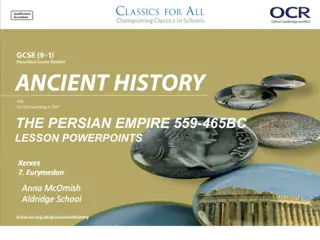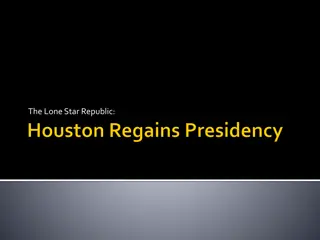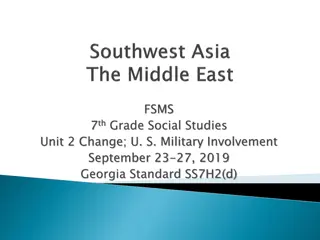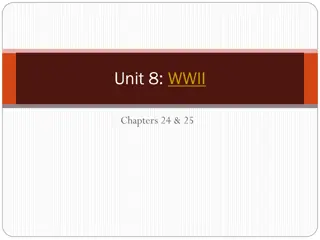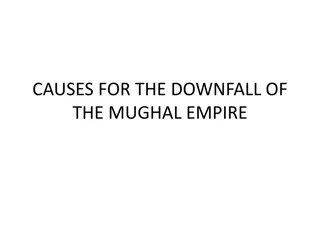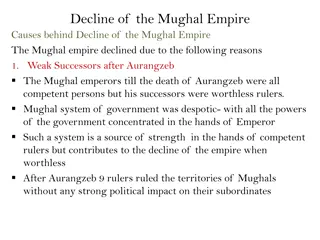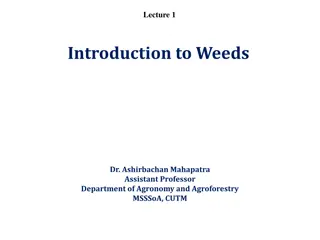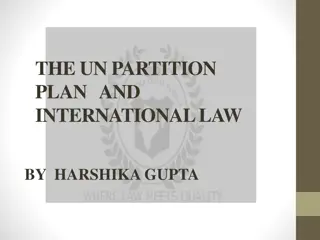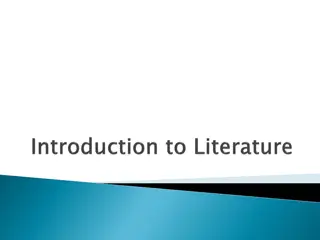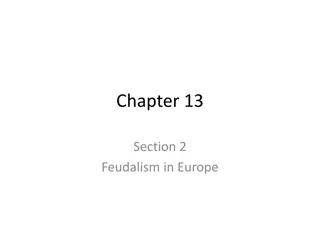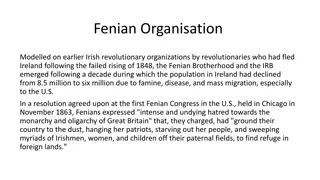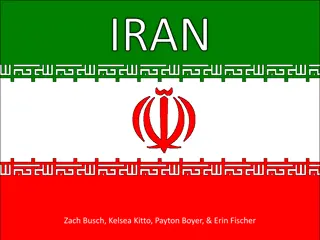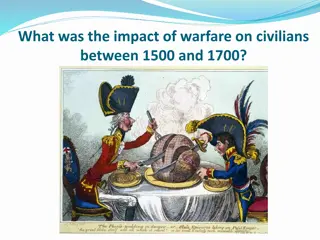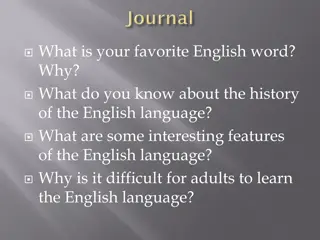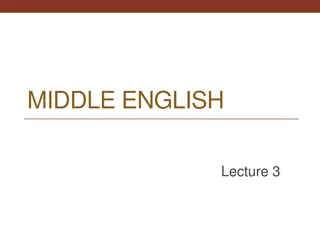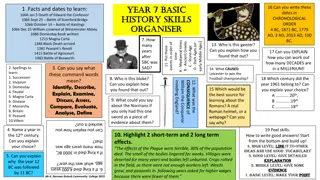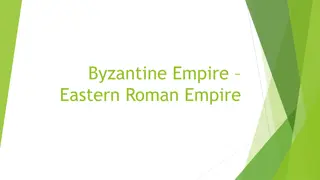Ghiyas-ud-din Balban: Rise to Power and Influence in Delhi Sultanate
Ghiyas-ud-din Balban, a former slave who rose to prominence in the Delhi Sultanate, played a crucial role in shaping its history. He served as a trusted advisor to multiple sultans, successfully repelled Mongol invasions, and eventually ascended to the throne himself. Despite facing initial challeng
0 views • 22 slides
The Battles of Xerxes: Thermopylae, Salamis, Eurymedon
Discover the key events and outcomes of Xerxes' invasions of Greece, including the battles at Thermopylae, Salamis, and Eurymedon. Learn about the leaders, strategies, and significant moments that shaped the fate of Persia and Greece during the Greco-Persian Wars.
1 views • 8 slides
Exploring People, Cultures, and Lands: Educational Journey Through History and Geography
Delve into a captivating educational journey exploring different aspects of people, cultures, and lands throughout history and geography. Topics range from religious education to historical invasions, and from understanding life in Britain to discovering the wonders of the USA. Engage in a diverse l
1 views • 5 slides
The Lone Star Republic: Sam Houston's Presidency Challenges
During Sam Houston's presidency in the Lone Star Republic, he faced various challenges such as budget constraints, threats of invasion from Mexico, and annexation by the United States. Houston implemented cost-cutting measures, tried to establish peaceful relations with Native Americans, and dealt w
0 views • 13 slides
U.S. Military Involvement in Southwest Asia: Analyzing Historical Continuity and Change
This unit covers the influence of the U.S. in Southwest Asia and explores events such as the Persian Gulf conflict, invasions of Afghanistan and Iraq. Students will examine the establishment of the modern State of Israel, including historical reasons like Jewish religious ties, the Holocaust, anti-S
5 views • 37 slides
World War II: Events and Strategies
World War II saw significant events unfold, from Hitler's invasions to Japan's attacks on Pearl Harbor, leading to the United States fully engaging in the global conflict. Strategies such as island hopping in the Pacific and the Defeat Hitler First approach in Europe were pivotal in shaping the outc
2 views • 28 slides
Causes for the Downfall of the Mughal Empire
The decline of the Mughal Empire post-Aurangzeb's reign was due to factors such as religious persecution, the Deccan policies, weak successors, financial difficulties, neglect of sea power, European settlement, and invasions. These political, social, and economic issues contributed to the downfall o
0 views • 9 slides
Causes Behind the Decline of the Mughal Empire
The decline of the Mughal Empire was influenced by weak successors after Aurangzeb, degeneration of Mughal nobility, inefficiency of the army, economic bankruptcy, foreign invasions, wars of succession, and court factions. The empire faced challenges such as incompetent rulers, weakened military, fi
2 views • 5 slides
Understanding Weeds: Origins, Impact, and Definitions
Weeds have been a persistent challenge in agriculture since ancient times, with origins stemming from both man's conscious efforts and natural plant invasions. This lecture delves into the impact of weeds on crop production and presents various definitions of weeds as plants growing where they are n
0 views • 10 slides
The UN Partition Plan and International Law in Relation to Resolution 181 by Harshika Gupta
The United Nations Resolution 181, passed in 1947, recommended the partition of Palestine into Arab and Jewish states. This plan, which led to conflict and violence, was considered a legal basis for the establishment of Israel. The resolution addressed the competing claims of Jews and Arabs over Bri
1 views • 15 slides
Decoding English Words: From Syllables to Morphemes
Explore the evolution of English language complexity due to historical invasions, the impact on orthography, and the significance of morphophonemic patterns in decoding, spelling, and understanding English words using Latin and Greek morphemes.
1 views • 22 slides
Evolution of Oral and Written Storytelling Traditions in European Culture
European storytelling traditions have evolved from oral recitations by bards to written compilations like Homer's epics, highlighting cultural beliefs and historical events. The influence of Celtic languages, Roman conquest, and Viking invasions shaped the development of English literature, reflecti
0 views • 26 slides
Feudalism in Europe: New Invasions and the Emergence of Feudalism
New invasions by Vikings, Magyars, and Muslims brought chaos to Western Europe, leading to the decline of central authority. Feudalism emerged as a system of governing and landowning, based on mutual obligations between lords and vassals. The Feudal Pyramid structured society, with kings at the peak
0 views • 19 slides
Exploring Sikhism, Hinduism, and Islamic History through Lala Daulat Rai's Insights
Delve into the rich history of Sikhism, Hinduism, and Islamic invasions as portrayed in Lala Daulat Rai's writings. Discover the reasons behind his book, his perspectives on historical events and religious beliefs, and the challenges faced by these communities. Gain valuable insights into the divers
0 views • 19 slides
Irish Mythological Cycle: Lebor Gabála Érenn Compilation
The Lebor Gabála Érenn, a 12th-century compilation, aims to preserve traditional Irish foundation myths, synchronize Irish and Christian myths, and provide Irish myths with Biblical authority. It outlines the arrival of different groups in Ireland, battles against the Fomoire, establishment of kin
0 views • 6 slides
The Fenian Brotherhood: Raids, Intrigues, and Ambitions
The Fenian Brotherhood, a revolutionary organization founded by Irish exiles, conducted military incursions into Canada in 1866 as part of their efforts to establish an Irish Republic. Motivated by grievances against British rule and seeking support from Irish-Americans, the Fenians enacted a bold p
0 views • 13 slides
Historical and Contemporary Overview of Iran
Iran, once known as Persia, has a rich history of withstanding various invasions while maintaining its national identity and pride in culture. The nation has experienced political, geographical, economic, and social transformations over the centuries, shaping its current state. From geographical det
1 views • 26 slides
Warfare Impact on Civilians Between 1500 and 1700
The impact of warfare on civilians between 1500 and 1700 varied, with factors like civilian deaths, recruitment, requisitioning, and taxation playing significant roles. While some regions experienced minimal impact due to lack of invasions, others faced challenges such as disruptions in trade, short
0 views • 14 slides
Evolution of the English Language: From Celts to Anglo-Saxons
The English language has evolved from the ancient Celts through the Roman Empire and Anglo-Saxon invasions. Influences from Latin, Greek, and Germanic languages have shaped modern English. Explore the history and cultural impacts of these civilizations on the development of the English language.
0 views • 21 slides
Understanding Middle English Evolution
The Middle English period began after the Norman invasion of 1066 and extended to the mid-15th century, witnessing significant linguistic changes influenced by Scandinavian and Norman French languages. This era saw alterations in phonology, morphology, syntax, and vocabulary, reflecting the impacts
0 views • 30 slides
History Skills and Timeline Events Organization
Explore a variety of history-related topics such as important dates, events, rulers, and invasions from different periods. Develop your knowledge of chronological order, key historical events, and critical thinking skills. Gain insights into the Normans, Romans, ancient tribes, and significant battl
0 views • 4 slides
Changes and Continuities in Byzantium: 600-1450 CE
Byzantium, as a continuation of the Roman Empire, experienced political, economic, religious, social, and interactive transformations over time. From Caesaropapism to Arab invasions, the empire witnessed shifts in power dynamics, economic activities, religious practices, social structures, and inter
0 views • 10 slides
Byzantine Empire and Eastern Orthodox Church Overview
The Byzantine Empire, also known as the Eastern Roman Empire, flourished from 330 CE to 1453 CE under Greek rule. It played a significant role in trade, politics, and culture during the Post-Classical Era, connecting trade routes and reconquering the West under rulers like Justinian. However, challe
0 views • 9 slides

